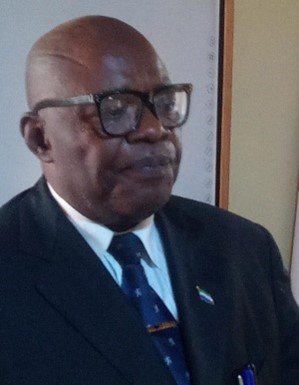By Komba Fillie
In an effort to strengthen local funding for health services, Health Alert in collaboration with WASH –Net on Monday 20th October 2025 convened a strategic meeting with district Council Representatives and WASH-Net Focal person from of Kenema, Bombali, Falaba, Karene, and Western Rural district, to projects the new commitment made by Council on the just concluded bilateral budget hearing. The ceremony was held at the Health Alert office Backhall Road in Freetown
The districts are part of an initiative co-championed by Health Alert and WASHNet Sierra Leone, which is geared towards promoting domestic financing for healthcare services. The project is supported by the Global Vaccine Alliance (GAVI) through the Global Health Advocacy Incubator (GHAI).
Victor Lansanah Koroma, Executive Director of Health Alert, explained that the meeting was a follow-up to earlier engagements where councils committed to prioritizing immunization and primary healthcare in their budgets. “So this is a follow up of that meeting to see whether those commitments were actualized,” he said. “We want to have a view and understanding of what the district council’s budget look like.”
The initiative is a direct response to growing donor apathy, a critical issue for Sierra Leone, which relies almost entirely on external donors for its development, particularly in healthcare. GAVI, for instance, funds 90 percent of the country’s childhood immunization programme.
“The world all over, we have been informed, funding is dwindling. Funding is narrowing down,” Koroma stated. The budget presentations revealed a mixed picture of concerns and gains. Falaba district, which struggles with a lack of infrastructure, demonstrated progress by increasing its allocation for immunization and primary healthcare from NLe8,000 to NLe10,000. In contrast, Bombali District did not make a presentation, raising concerns about its cooperation.
Despite the challenges, officials highlighted the progress made. Abdurahman Keys, who chaired the meeting, stated they had witnessed “some positive steps” by the councils. “With domestic resources they collected, they ensured that there are lines being created from their budget,” Keys told ManoReporters. “So we have seen a lot of gains at this initial phase.”




